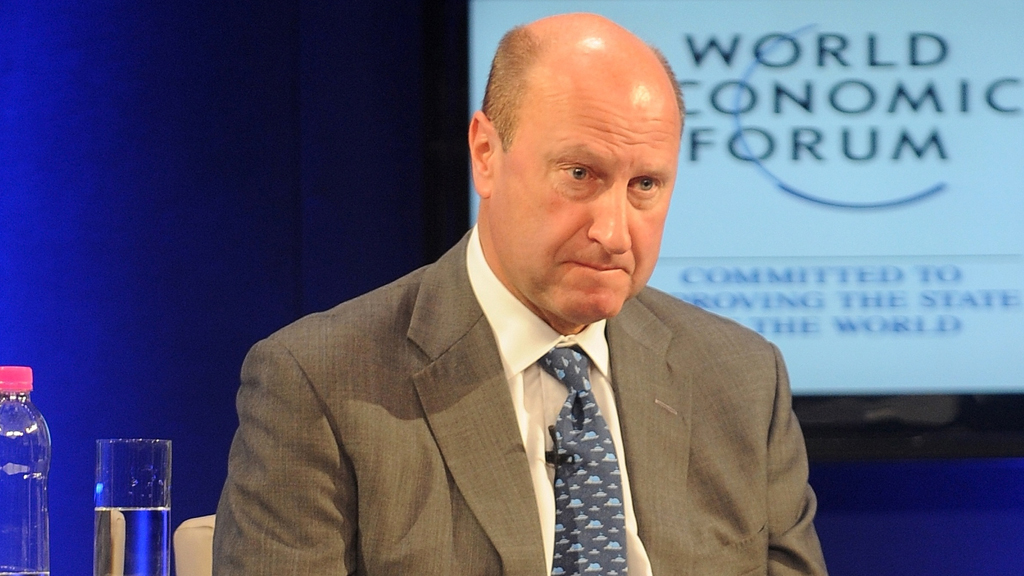Has Barclays bank really turned over a new leaf?
 Siobhan Kennedy
Washington Correspondent
Siobhan Kennedy
Washington Correspondent
After sneaking out news of multi-million pound payouts to top staff on budget day, can we believe Barclays has turned over a new leaf? Channel 4 News Business Correspondent Siobhan Kennedy thinks not.
It was less than a month ago that Barclays new chief executive Antony Jenkins promised a new era in banking.
Gone were the days of excessive pay and miscreant bankers taking the (Libor) law into their own hands. The new Barclays was all about restraint, he said, responsibility, openness.
So just how does Mr Jenkins label Barclays’ move to sneak out details of a £40 million bonus share bonanza for its top executives the very day the rest of us are told we’ll continue to feel the painful reverberations of the financial crisis for years to come?
Which one of his new banking buzzwords does that fall under?
A Barclays spokesman tonight insisted these awards were for past performance and stressed it had now changed its strategy around pay.
“The share releases detailed in this announcement include deferred shares awarded from previous years’ annual performance bonuses and, in some cases, vesting of historical Long Term Incentive Plans where the agreed performance conditions for vesting have been met. As was stated in the 2012 Annual Report published on 8 March, Barclays has revised its remuneration policy and all future incentive awards, short and long-term, will be based on the new principles that have been set out.”

Worse still was the revelation that Rich Ricci, the American head of its investment bank, in one single day cashed in those options and pocketed a cool £17.6m.
Mr Jenkins himself – the paragon of banking virtue – received £5.3 million in share awards on top of the £2.6 million he was just awarded in salary for last year. He cashed in half his shares.
Read more - Barclays' new chief executive: 'nice guy' Antony Jenkins
Chris Lucas, one of the executives being questioned by the Serious Fraud Office for his role in structuring a controversial share sale to Qatar at the height of the banking crisis, himself made off with more than a million.
But for me it’s Mr Ricci’s mind bogglingly massive cash pile that really sticks in the throat.
Why? Because he is the head of the part of the bank that was found guilty for deliberately rigging key interbank leading rates. It forced Barclays to fork out nearly £300 million in fines here and in the US, and caused such a financial and reputational earthquake that both its chairman and chief executive Bob Diamond, was forced to step down.
Sure it was Bob Diamond who was in charge of the investment bank back then, but Mr Ricci is a Diamond protege, and in that sense epitomises the era of excess.
He and Mr Jenkins made a huge deal of foregoing their bonus for 2012 – the year of the Libor crisis – in a bid to ingratiate themselves with the public and to be “seen” to be doing the right thing.
I, for one, thought it was an indication that things had changed.
Of course we now know that was an easy sacrifice to make, knowing, as both men did, that they were due for imminent windfalls anyway.
And on what planet could they possibly think it’s “right and proper” – or whatever highfalutin language Mr Jenkins would now use – to forego a bonus the year the Libor criminality came to light, but to keep it for the years the criminality was actually taking place?
If Mr Jenkins truly wanted us to believe that Barclays had turned a corner and was now a bank that put its customers first, rather than the egos or pockets of its senior executives, he would have cancelled these past bonus payments.
As it is, not only did he allow them to go ahead, he tried to bury the news on a day that for most of the country was a stark reminder of how difficult life will be for years to come. Difficult because of an economic downturn caused, in part, by the excesses of bankers just like Bob Diamond and Rich Ricci.
The only conclusion is that Barclays doesn’t get it, and hasn’t changed one iota.
A Barclays spokesman tonight insisted these awards were for past performance and stressed it had now changed its strategy around pay.
“The share releases detailed in this announcement include deferred shares awarded from previous years’ annual performance bonuses and, in some cases, vesting of historical Long Term Incentive Plans where the agreed performance conditions for vesting have been met. As was stated in the 2012 Annual Report published on 8 March, Barclays has revised its remuneration policy and all future incentive awards, short and long-term, will be based on the new principles that have been set out.”
-
Latest news
-
Windrush scandal: returning to the UK after a forty year wait6m

-
Netanyahu ‘survival’ depends on ‘expanding war’ says head of Palestinian National Initiative5m

-
Proposed law change could strip parental rights from paedophiles5m

-
Hugh Grant settles privacy lawsuit against The Sun newspaper publisher2m

-
Post Office Scandal: what did top executive know?6m

-




